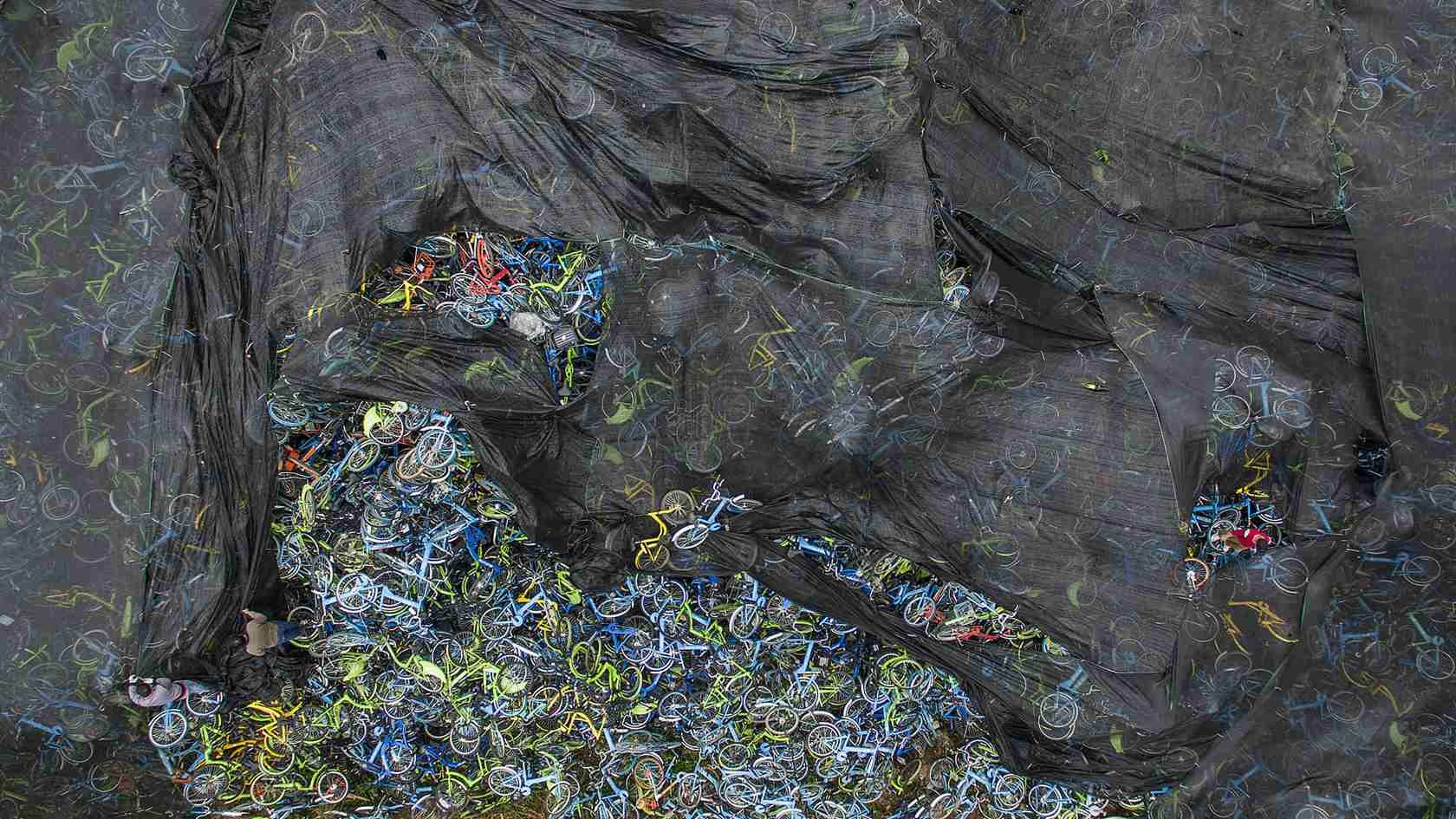
Business
20:20, 23-Feb-2018
Spending Smart: Upgraded consumption contributes to GDP but challenges the environment
By CGTN’s Chen Tong

Consumption contributed to more than half of the China's GDP last year, posing serious environmental problems in the meantime.
Plastic boxes discarded by food delivery services, shipping packages from online stores and discarded bikes on the roads all are taking a heavy toll on the country's urban environments.
When China's online sales volume hit another record in 2017, the number of China's packages made during the year also hit a record -- over 40 billion, up nearly 30 percent year on year. And only 20 percent of those packages are recyclable.
Meanwhile, the sharing economy is also challenging the bottom line of the urban environment. As of the end of last July, there were 16 million shared bikes on China's roads. But those broken and discarded bikes, which have been just dumped by the roadside, gave headaches to both local governments and the bikesharing companies themselves.

Broken and discarded sharing bikes /VCG Photo
Broken and discarded sharing bikes /VCG Photo
Local governments are taking on the problem. Shanghai last August banned the companies from putting any additional bikes on the road. Bikesharing companies are working on the problem as well. Ofo, for example, has about 2,000 staff in Shanghai doing nothing but fixing the bikes every day. And the company also tried to recycle the broken ones into new bikes.
“For those bikes that reach [the end of] their life cycle, they will be delivered to the center. Then they will be sorted, recycled, and reused for the production of raw material,” said Mei Jiaqi, the general manager at Ofo Shanghai.
From food delivery to the sharing economy, the Chinese government is setting up various regulations to combat the new environmental challenges. The State Council says producers should take responsibility for the recycling and management of products that reach the end of their life cycle. The government intends the enforcement of the regulations to ensure that 40 percent of discarded products will be recycled or properly disposed of by 2020.
“Firstly, we should strengthen the promotion of protecting environment to our residents. And the government should also set legislative rules,” said Professor Du Huanzheng from Circular Economy Institute at Tongji University.

SITEMAP
Copyright © 2018 CGTN. Beijing ICP prepared NO.16065310-3
Copyright © 2018 CGTN. Beijing ICP prepared NO.16065310-3